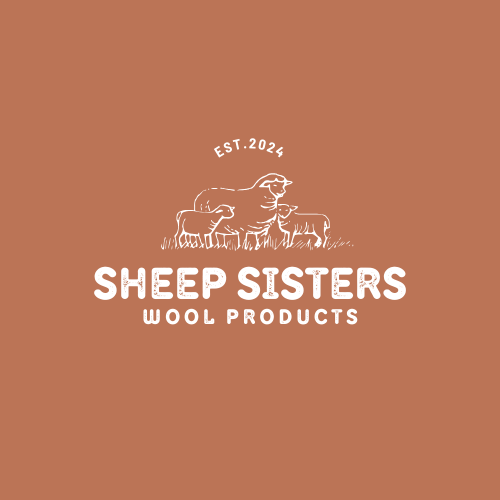When it comes to choosing slippers, many people wonder: Are wool slippers better than synthetic ones? Both materials have their merits, but in this comparison, we’ll show you why wool slippers often come out on top. We’ll explore key aspects like comfort, sustainability, breathability, and durability to help you find the perfect pair for your needs.
1. Comfort: Why Wool Slippers Are Unbeatable
Wool slippers, especially Merino wool slippers, are renowned for their soft, cozy comfort. Compared to synthetic slippers, they provide natural warmth that’s ideal for cold feet. While synthetic materials like polyester or acrylic can also be warm, they tend to cause static buildup and often feel less pleasant against the skin.
Benefits of Wool Slippers:
- Natural Temperature Regulation: Wool adapts to your body temperature – keeping you warm in winter and cool in summer.
- Soft and Cozy: Sheep’s wool is naturally soft, making it perfect for sensitive feet.
- No Sweating: Wool is breathable and prevents sweaty feet.
Drawbacks of Synthetic Slippers:
- Static Buildup: Synthetics can cause uncomfortable static shocks.
- Less Breathable: Synthetic materials trap moisture, leading to sweat and odor.
💡 Tip: Try our Merino wool slippers for cold feet and experience the difference yourself!

2. Sustainability: Wool vs. Synthetic
One of the biggest advantages of wool slippers is their eco-friendliness. Wool is a renewable resource that’s biodegradable. In contrast, synthetic slippers are made from petroleum-based materials, which are non-biodegradable and harmful to the environment.
Why Wool is Sustainable:
- Natural Material: Sheep’s wool is produced naturally and is free from harmful chemicals.
- Biodegradable: Wool breaks down completely, unlike synthetic materials.
- Durable: Wool slippers last longer, reducing waste.
Why Synthetics Harm the Environment:
- Petroleum-Based: Synthetic materials are made from non-renewable resources.
- Microplastic Pollution: Washing synthetic slippers releases microplastics into waterways.
🌱 Sustainability Tip: Choose sheep’s wool slippers and make a positive impact on the environment.
3. Breathability: Why Wool Breathes Better
Another key factor is breathability. Wool slippers are more breathable than synthetic ones because wool can absorb and release moisture. This means your feet stay dry and comfortable, even after hours of wear.
How Wool Regulates Moisture:
- Moisture Absorption: Wool can absorb up to 30% of its weight in moisture without feeling wet.
- Odor-Resistant: Wool naturally inhibits bacterial growth, preventing unpleasant odors.
Issues with Synthetics:
- Sweat Buildup: Synthetic materials trap moisture, leading to sweaty feet.
- Odor Development: Moisture in synthetic slippers can cause bad smells.
For Sensitive Feet: Our breathable wool slippers are perfect for people with sensitive skin.

4. Durability: Which Slippers Last Longer?
Wool slippers are known for their exceptional durability. With proper care, they can last for years without losing their shape or quality. Synthetic slippers, on the other hand, tend to wear out faster and lose their insulating properties.
Why Wool Slippers Last Longer:
- Strong and Resilient: Sheep’s wool is naturally resistant to wear and tear.
- Shape Retention: Wool slippers maintain their shape even after prolonged use.
Drawbacks of Synthetics:
- Faster Wear and Tear: Synthetic materials can stretch out or lose their shape after repeated washing.
- Reduced Insulation: Synthetics lose their warming properties over time.
5. Care and Cleaning: Which is Easier?
A common argument against wool slippers is that they’re harder to clean. However, with the right care, wool slippers are just as easy to clean as synthetic ones. Here are some tips:
Cleaning Wool Slippers:
- Use a mild wool detergent.
- Hand wash or use a gentle machine cycle.
- Dry them flat to maintain their shape.
Cleaning Synthetic Slippers:
- Synthetic slippers can often be machine washed.
- Avoid high heat to prevent loss of shape.

Conclusion: Why Wool Slippers Are the Better Choice
In summary, wool slippers are the better choice in most cases. They offer superior comfort, sustainability, breathability, and durability compared to synthetic slippers. If you’re looking for slippers that keep your feet warm, dry, and happy, wool slippers are the way to go.
Our Top Picks for Wool Slippers
- Merino Wool Long Slippers for Cold Feet
- Sheep’s Wool Slippers for Hard Floors
- Breathable Wool Slip-ons for Sensitive Feet
FAQ: Common Questions About Wool Slippers
1. Are wool slippers better for sensitive feet?
Yes, wool slippers are breathable and soft, making them ideal for sensitive feet.
2. Can you wash wool slippers?
Yes, wool slippers can be cleaned with a mild wool detergent.
3. Why are wool slippers more sustainable?
Wool is a natural, renewable resource that’s biodegradable.
Sustainable, comfortable, and durable – discover our wool slippers at Sheep Sisters and take a step toward a more sustainable lifestyle!

